
Find Help
More Items From Ergsy search
-
Has the FDA approved aspirin for cancer prevention?
Relevance: 100%
-
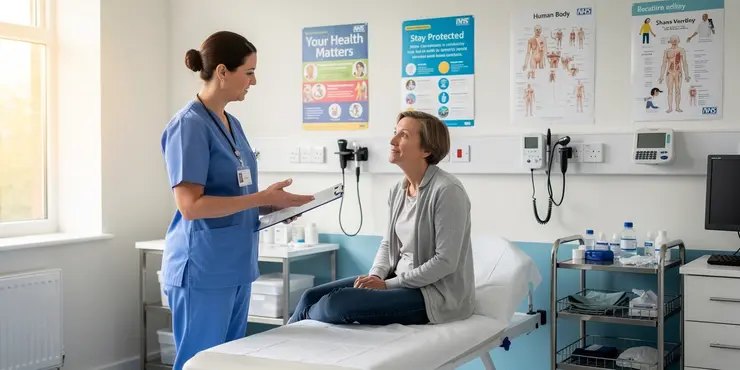
Is Paillon treatment FDA approved?
Relevance: 59%
-
Is aspirin effective in preventing other types of cancer?
Relevance: 56%
-
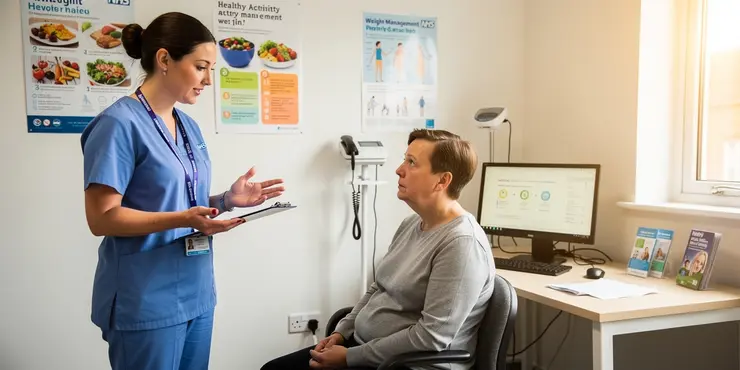
Are Wegovy tablets FDA approved?
Relevance: 55%
-
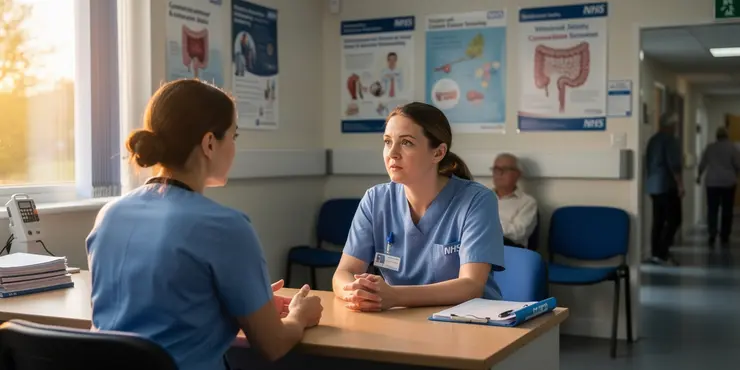
Is aspirin recommended for everyone to prevent colorectal cancer?
Relevance: 50%
-
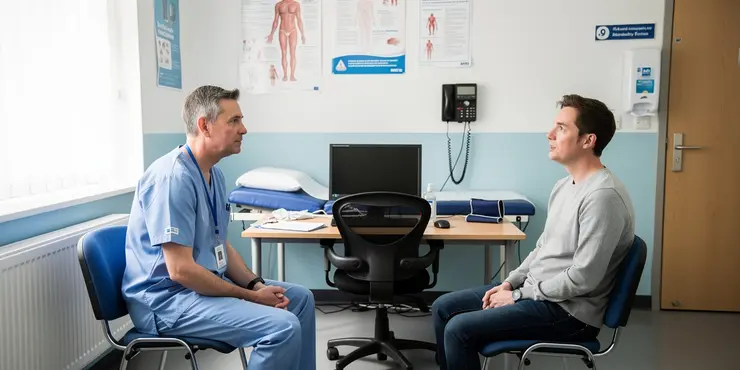
What should I do if I'm considering aspirin for cancer prevention?
Relevance: 49%
-
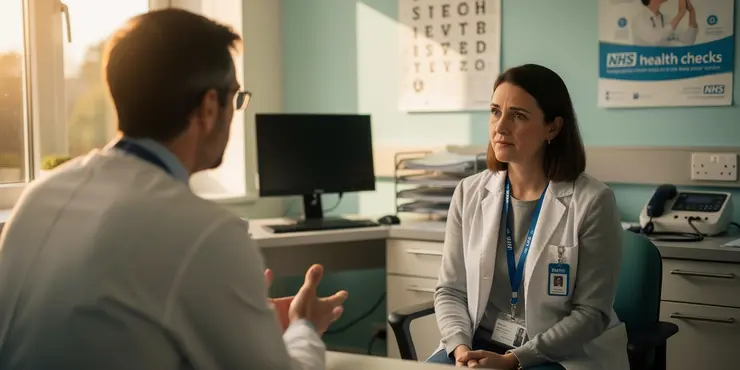
Can aspirin stop colorectal cancer?
Relevance: 49%
-
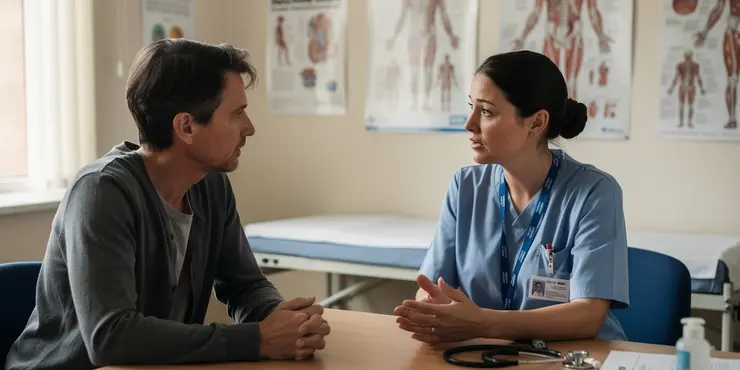
What do health organizations say about aspirin and cancer prevention?
Relevance: 49%
-
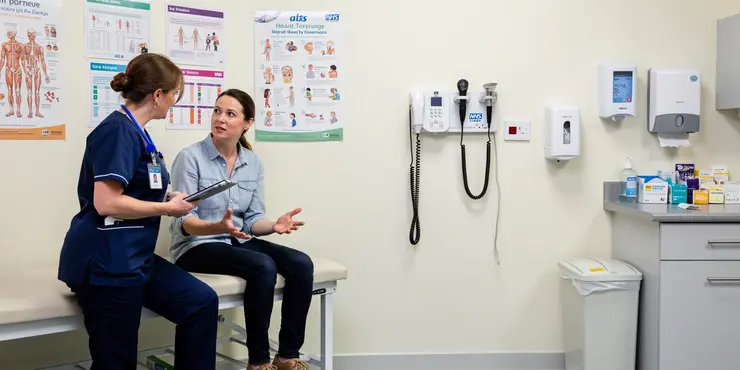
What dosage of aspirin is considered effective for cancer prevention?
Relevance: 48%
-

How does aspirin work to reduce cancer risk?
Relevance: 47%
-
How long do studies suggest taking aspirin for cancer prevention?
Relevance: 47%
-
Is aspirin more effective for certain age groups in preventing colorectal cancer?
Relevance: 45%
-
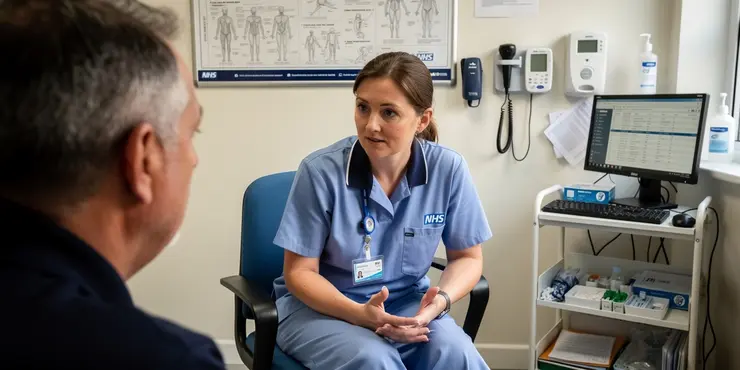
Has aspirin been proven to cure colorectal cancer?
Relevance: 41%
-
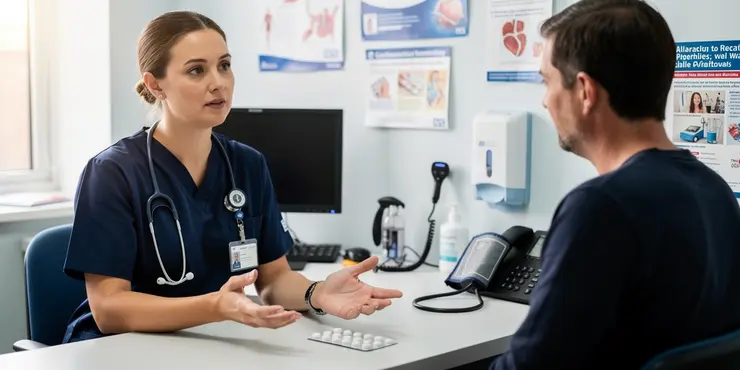
Should people with a family history of colorectal cancer take aspirin?
Relevance: 39%
-
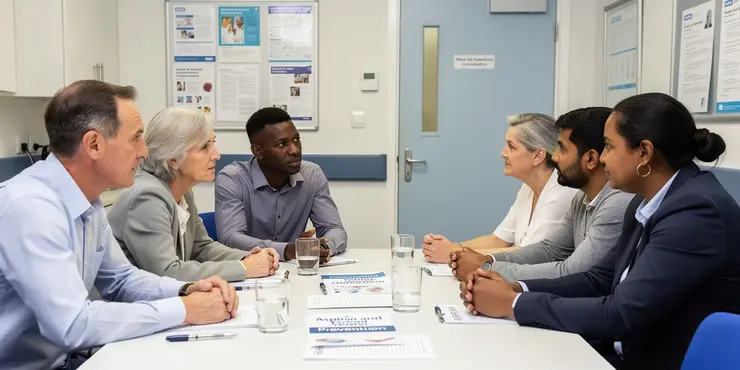
Can aspirin prevent colorectal cancer?
Relevance: 38%
-
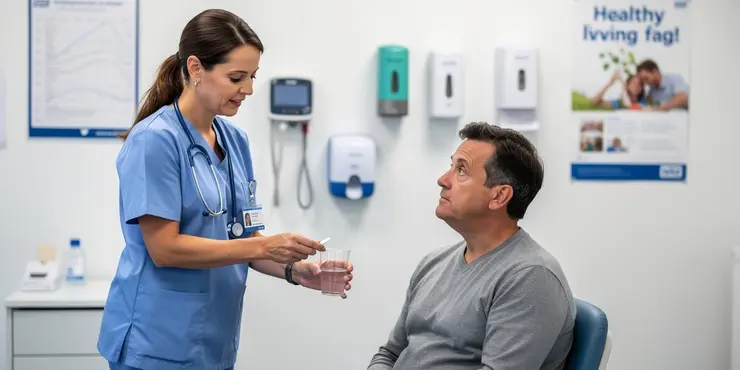
What is Aspirin?
Relevance: 31%
-

Are Aspirin and Ibuprofen the same?
Relevance: 29%
-
Are there ongoing studies about aspirin and colorectal cancer?
Relevance: 29%
-
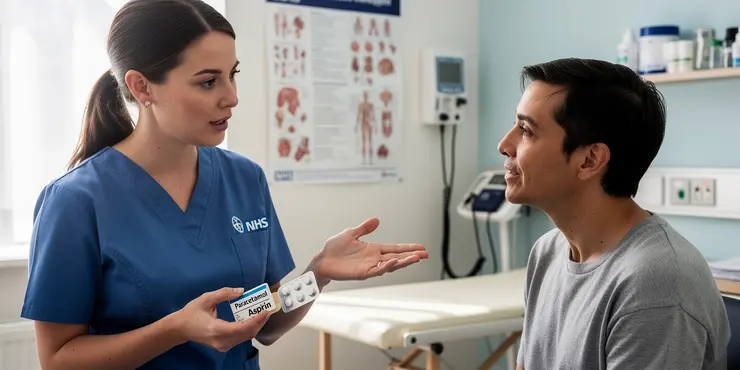
Is Paracetamol the same as Aspirin?
Relevance: 29%
-
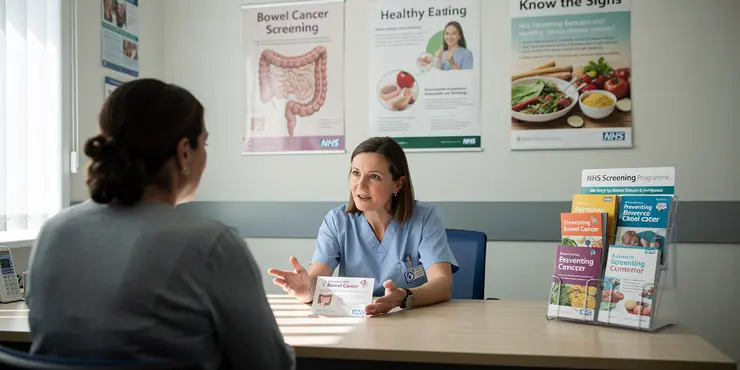
Can bowel cancer be prevented?
Relevance: 28%
-
Can aspirin interact with other medications?
Relevance: 28%
-
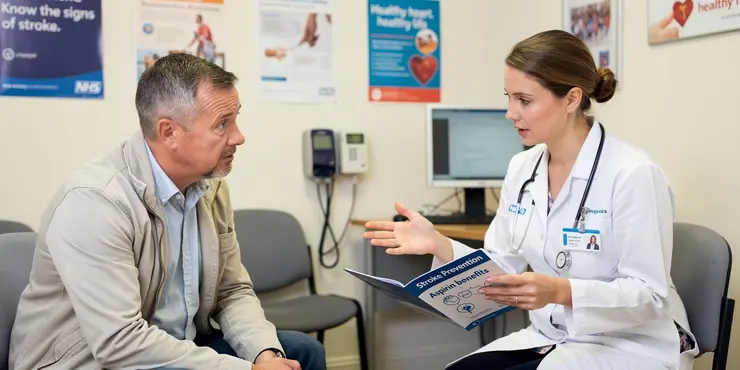
Can aspirin help in reducing the risk of strokes?
Relevance: 28%
-
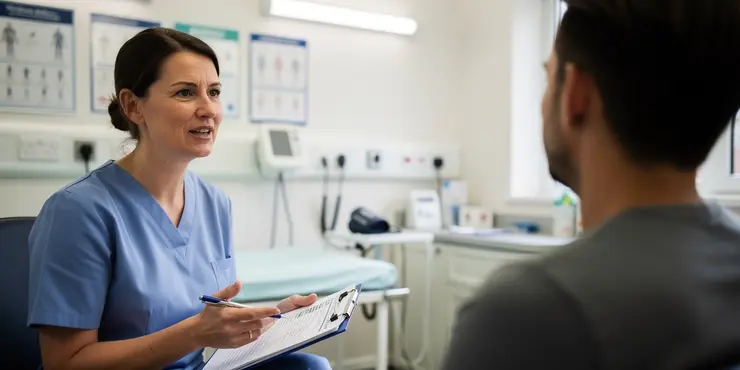
What are the side effects of Aspirin?
Relevance: 27%
-
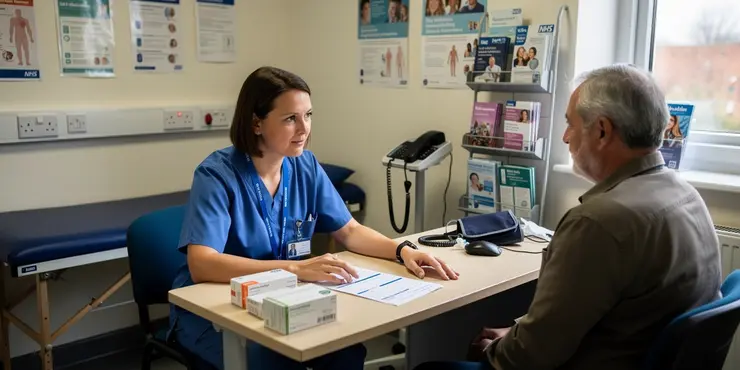
Can I take Aspirin and Ibuprofen together?
Relevance: 26%
-
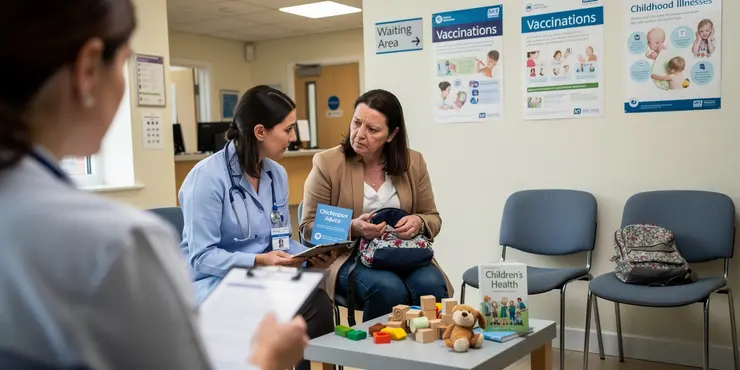
Is it safe to use aspirin to treat chickenpox symptoms?
Relevance: 26%
-
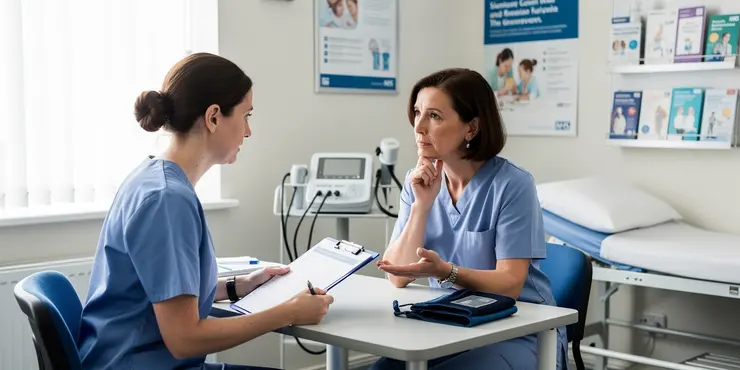
What is the difference between Aspirin, Paracetamol, and Ibuprofen?
Relevance: 25%
-
Should individuals with certain medical conditions avoid aspirin?
Relevance: 25%
-
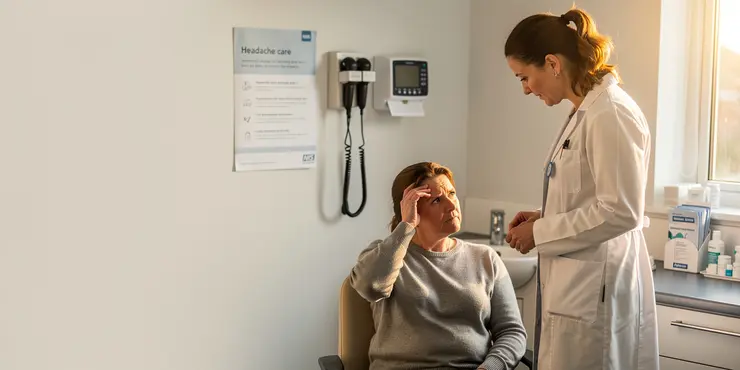
Which one is better for headaches: Aspirin or Paracetamol?
Relevance: 25%
-
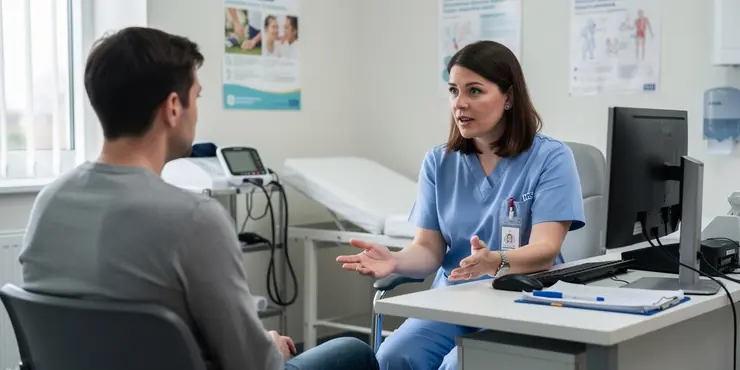
Has Ozempic been approved for weight loss?
Relevance: 25%
-
What is the difference between aspirin, paracetamol, and ibuprofen?
Relevance: 25%
-

Can lifestyle changes help prevent testicular cancer?
Relevance: 24%
-
Do over-the-counter medications help in preventing heart attacks and strokes?
Relevance: 24%
-
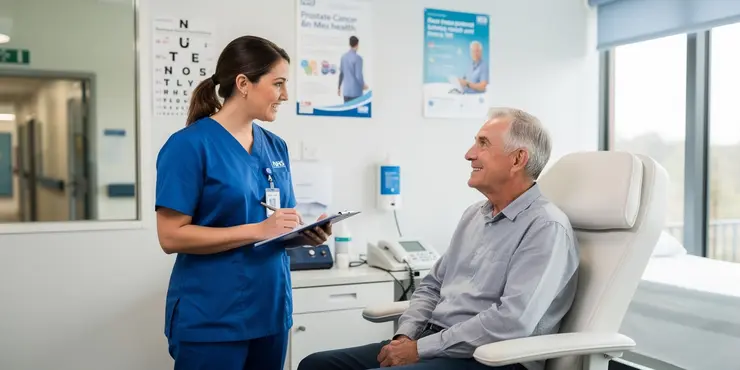
Breakthrough in Cancer Treatment Offers Hope for Prostate Cancer Patients
Relevance: 23%
-
Can lifestyle changes also help prevent colorectal cancer?
Relevance: 23%
-
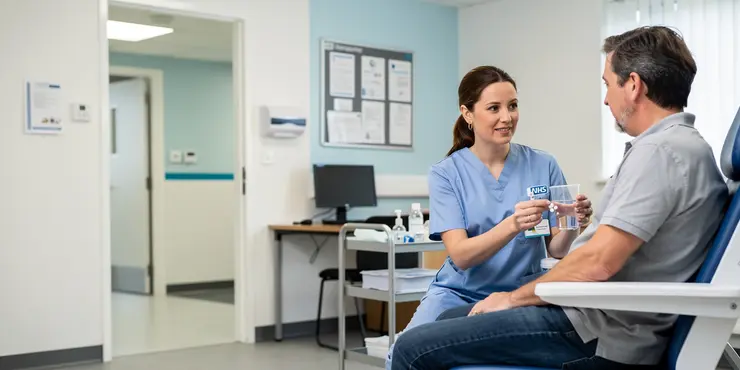
What is Aspirin?
Relevance: 23%
-

How will I know if my Time to Pay arrangement is approved?
Relevance: 22%
-
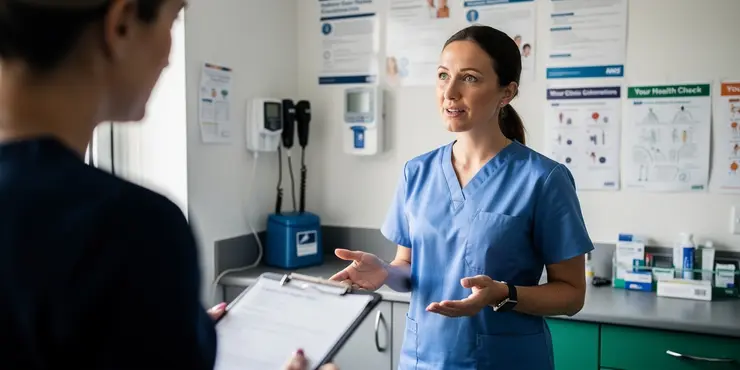
What happens after my immigration case is approved?
Relevance: 22%
-
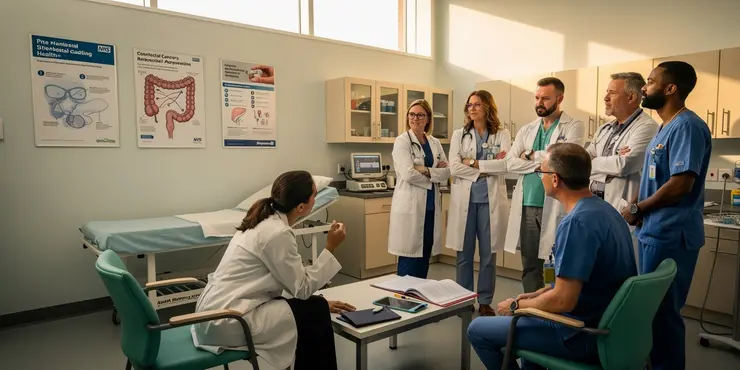
Do all studies agree on aspirin's effectiveness in preventing colorectal cancer?
Relevance: 21%
-
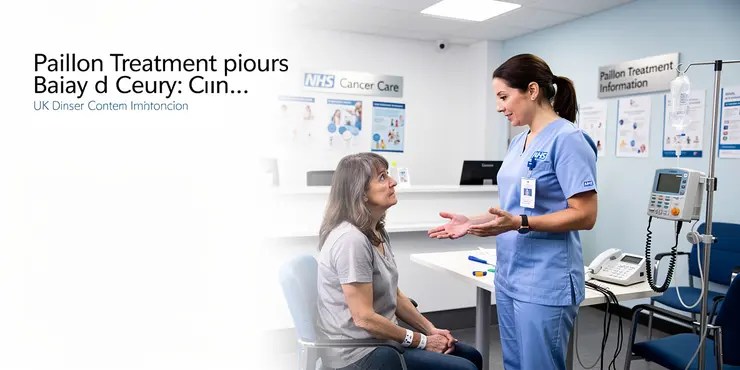
What is Paillon treatment for cancer?
Relevance: 21%
-
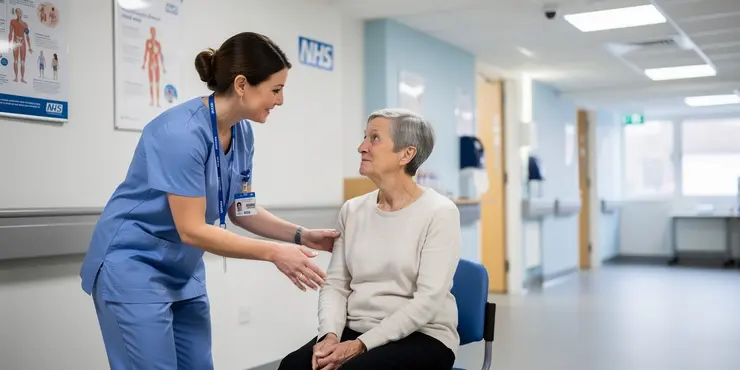
How can I find approved installers for the home charger grant?
Relevance: 21%
Introduction
Aspirin is a widely used medication, praised for its effectiveness in relieving pain and reducing inflammation. For decades, it has been accessible over-the-counter and used primarily as an analgesic. However, aspirin's potential role in cancer prevention has been a topic of significant interest within the medical community. This article explores whether the US Food and Drug Administration (FDA) has approved aspirin specifically for cancer prevention and its implications for the UK audience.
The Role of Aspirin in Cancer Prevention
Numerous studies have investigated aspirin's potential benefits beyond pain relief, particularly in the context of cancer prevention. Some research suggests that regular aspirin use may reduce the risk of certain types of cancer, most notably colorectal cancer. These findings have sparked discussions on the potential inclusion of aspirin in cancer prevention guidelines.
FDA's Position on Aspirin for Cancer Prevention
As of the latest updates, the FDA has not approved aspirin explicitly for the purpose of cancer prevention. The FDA carefully evaluates the benefits and risks of medications before granting approval for specific uses. While some evidence indicates that aspirin may help prevent cancer, the risks associated with long-term aspirin use, such as bleeding and gastrointestinal issues, have prevented its approval for this indication.
Considerations for the UK Audience
While the FDA's decisions primarily affect the United States, they often influence global medical practices, including in the UK. However, decisions regarding drug approvals are made by national regulatory bodies. In the UK, the National Institute for Health and Care Excellence (NICE) and the Medicines and Healthcare products Regulatory Agency (MHRA) are responsible for providing guidelines and approving medications.
Current Recommendations and Ongoing Research
Currently, aspirin is not officially included in cancer prevention guidelines in the UK due to the lack of conclusive evidence and approval. However, research continues to explore its efficacy and safety in cancer prevention. Clinicians may consider aspirin's potential benefits on a case-by-case basis, emphasizing the importance of consulting healthcare professionals before starting any long-term medication regimen, particularly for off-label uses.
Conclusion
Although promising research suggests that aspirin may have a role in cancer prevention, the FDA has not granted it approval for this specific purpose. This caution is due to the significant risks associated with prolonged aspirin use. Individuals in the UK are advised to follow national guidelines and consult healthcare professionals for personalized medical advice. As research advances, regulatory positions may evolve, highlighting the importance of staying informed about the latest developments in medical science.
Introduction
Aspirin is a common medicine. People use it to help with pain and swelling. It's easy to buy in shops. Many people use it for pain relief. Doctors are also looking at aspirin to see if it can stop cancer. This article talks about whether the US Food and Drug Administration (FDA) says it's okay to use aspirin to prevent cancer and what this means for people in the UK.
The Role of Aspirin in Cancer Prevention
Many studies have looked at aspirin to see if it does more than just help with pain. Some studies say taking aspirin often might lower the chance of getting some cancers, like bowel cancer. People are talking about whether aspirin should be in rules about stopping cancer.
FDA's Position on Aspirin for Cancer Prevention
The FDA has not said that aspirin can be used to stop cancer. The FDA checks very carefully if medicines are safe and work well before they say yes to using them for special reasons. Some studies show that aspirin might stop cancer, but taking aspirin for a long time can cause problems, like bleeding or stomach issues. That's why the FDA hasn't approved it for stopping cancer.
Considerations for the UK Audience
What the FDA says mostly affects the US, but it can also influence other countries, like the UK. Each country makes its own decisions about medicines. In the UK, the National Institute for Health and Care Excellence (NICE) and the Medicines and Healthcare products Regulatory Agency (MHRA) decide on medicine guidelines and approvals.
Current Recommendations and Ongoing Research
Right now, aspirin is not in the UK guidelines for stopping cancer because we don't have enough proof and it isn't approved for that. But scientists are still studying it to see if it works and is safe for cancer prevention. Doctors might think about aspirin's use one person at a time, but it’s really important to talk to a healthcare professional before starting to take any medicine for a long time, especially if it's not officially approved for something.
Conclusion
Even though some studies say aspirin could help stop cancer, the FDA hasn't approved it for that. This is because taking aspirin for a long time has risks. People in the UK should follow what the UK health guidelines say and talk to healthcare professionals for advice. As more research comes out, experts might change their views, so it’s good to keep updated with the latest health news.
Frequently Asked Questions
Has the FDA approved aspirin for cancer prevention?
No, the FDA has not approved aspirin specifically for cancer prevention.
Can aspirin be used to prevent cancer?
Some studies suggest aspirin may reduce the risk of certain cancers, but it is not officially approved for cancer prevention.
What cancers have been studied in relation to aspirin use?
Research has primarily focused on colorectal cancer, but other types have also been investigated.
Is aspirin safe to take for cancer prevention?
Aspirin can have side effects, and its use for cancer prevention should be discussed with a healthcare provider.
Are there any guidelines for aspirin use in cancer prevention?
There are no specific FDA guidelines for aspirin use solely for cancer prevention.
What are the potential benefits of taking aspirin for cancer?
Potential benefits include a reduced risk of colorectal cancer for some individuals.
What are the risks associated with taking aspirin?
Aspirin can cause gastrointestinal bleeding, ulcers, and other side effects.
Who should consider taking aspirin for cancer prevention?
Decisions regarding aspirin use should be made on an individual basis, considering personal health factors.
Has aspirin been studied in clinical trials for cancer prevention?
Yes, several studies and clinical trials have evaluated aspirin's effects on cancer risk.
Does taking aspirin guarantee cancer prevention?
No, taking aspirin does not guarantee cancer prevention, and its effects can vary.
What is the appropriate aspirin dosage for cancer prevention?
There is no official FDA-recommended dosage for cancer prevention.
Are there ongoing studies about aspirin and cancer prevention?
Yes, research is ongoing to better understand aspirin's role in cancer prevention.
Can anyone start taking aspirin for cancer prevention on their own?
It is not recommended to start aspirin therapy for cancer prevention without consulting a healthcare provider.
What age group might benefit from aspirin for cancer prevention?
Some guidelines suggest potential benefits for middle-aged adults, but this should be personalized.
Is there a specific type of aspirin recommended for cancer prevention?
There is no specific type recommended by the FDA for cancer prevention purposes.
How does aspirin potentially reduce cancer risk?
Aspirin's anti-inflammatory effects may play a role in reducing the risk of certain cancers.
Have any health organizations recommended aspirin for cancer prevention?
Some health organizations provide guidelines, but recommendations vary and should be individualized.
Why hasn't the FDA approved aspirin for cancer prevention?
The FDA requires conclusive evidence from studies before approving medications for specific indications.
Can aspirin replace other cancer prevention strategies?
No, aspirin cannot replace other cancer prevention methods like screenings and healthy lifestyle choices.
What should I do if I'm considering aspirin for cancer prevention?
Consult with a healthcare provider to discuss potential benefits and risks based on your health profile.
Can you take aspirin to stop cancer?
The FDA is a group that checks if medicines are safe. They have not said it's okay to use aspirin to stop cancer.
If you want to know more about aspirin or cancer, talk to a doctor. You can also use tools like picture charts or easy-read guides to help understand.
No, the FDA has not approved aspirin to stop cancer from happening.
Can aspirin stop cancer?
Aspirin is a medicine some people take. Doctors are looking at if it helps stop cancer. It's good to talk to your doctor about this.
Here are some tips to help:
- Ask questions if something is hard to understand.
- Use pictures to learn more about cancer and aspirin.
- Talk to someone you trust about what you read.
Some research says that taking aspirin might help lower the chance of getting some types of cancer. But doctors do not officially say to take aspirin to stop cancer.
What types of cancer have been looked at for aspirin use?
Scientists have checked if aspirin can help with different types of cancer.
Aspirin is a medicine that some people take to feel better.
People think it might help with some kinds of cancer.
You can talk to a doctor or nurse if you have questions.
They can give advice and help you understand more.
Most studies look at bowel cancer, but they also study other kinds of cancer.
Can I take aspirin to stop cancer?
Aspirin is a medicine. Some people think it might help stop cancer. But it can also have side effects. It's important to ask a doctor before taking it.
It’s a good idea to:
- Talk to your doctor.
- Learn about the good and bad effects.
- Use pictures or videos to understand more.
Aspirin can sometimes cause problems. Talk to a doctor before using it to stop cancer. They can help you make the best choice.
Can aspirin help stop cancer?
Are there any rules for taking aspirin to prevent cancer?
Aspirin is a medicine. It can help in some ways, but it can also have side effects. Always talk to a doctor before using it.
For more help, you can:
- Use pictures to understand better.
- Ask someone to explain the words you don't know.
- Listen to this information with an audio tool if it helps you.
The FDA does not have special rules about using aspirin just to stop cancer.
How can taking aspirin help with cancer?
Aspirin might help stop cancer from growing. Here are some possible benefits:
- Aspirin can lower swelling. Swelling is when part of your body gets bigger and sore.
- Aspirin might stop cancer cells from spreading to other parts of your body.
- Some studies say aspirin can help people live longer who have cancer.
If you find reading hard, try tools like text-to-speech apps. They can read the text out loud for you.
Some people might have a lower chance of getting bowel cancer.
What can happen if you take aspirin?
Aspirin is medicine. It helps with pain and fever. But sometimes, it is not good for you. Here are some things to know:
- Aspirin can make your tummy hurt or bleed.
- Sometimes, it can make you feel dizzy or sick.
- It might hurt your ears and make them ring.
- Some people should not take aspirin, like kids with chickenpox or the flu.
- If you have asthma, aspirin can make breathing hard.
Always ask a doctor or an adult before taking aspirin.
Use tools like audiobooks or apps that read the words out loud if you find it hard to read.
Aspirin can hurt your stomach. It might cause bleeding or sores. It can also have other side effects.
Who should think about taking aspirin to stop cancer?
Each person should decide if they need to use aspirin. It's important to think about their own health when deciding.
Have doctors used tests to see if aspirin can stop cancer?
Yes, many studies have looked at how aspirin can affect cancer risk.
Will taking aspirin stop cancer for sure?
Doctors are not sure if aspirin can stop cancer. Some people think it might help, but it does not work for everyone. Always talk to a doctor first.
Here are some tips to help you understand:
- Use pictures or videos to learn more.
- Ask someone you trust to explain it.
- Take your time and ask questions.
No, taking aspirin does not always stop cancer. It works differently for everyone.
How much aspirin should you take to help stop cancer?
The FDA doesn't have an official advice for how much to take to stop cancer.
Is anyone studying if aspirin can stop cancer?
Yes, scientists are studying how aspirin might help stop cancer.
Can I start taking aspirin by myself to stop cancer?
No, you should not take aspirin on your own to stop cancer. Always talk to a doctor first. They can tell you what is safe.
Here are some tips to help you:
- Use simple words: When reading about health, it’s okay to ask for simpler words.
- Ask for help: Talk to someone you trust like a family member or friend.
- Use pictures: Find books or videos with pictures to help understand.
Talk to your doctor before taking aspirin to prevent cancer. Do not start on your own.
Who can use aspirin to help stop cancer?
Some rules say there could be good things for people who are in the middle of their life, but it should be different for each person.
What kind of aspirin helps stop cancer?
The FDA does not say we should use any special type to stop cancer.
How might aspirin help stop cancer?
Aspirin is a type of medicine. Some doctors think it might help stop some cancers. This means people who take aspirin could have less chance of getting cancer.
It's important to remember:
- Always talk to a doctor before taking aspirin.
- Doctors know what is safe for you.
- Not everyone should take aspirin.
If reading is hard, try these tips:
- Ask someone to read with you out loud.
- Use a computer program to read the text to you.
- Break the text into small parts and read slowly.
Aspirin can help lower swelling in the body. This might help lower the chance of getting some types of cancer.
Do any health groups say to take aspirin to stop cancer?
Different health groups give different advice about health. It's important to remember that what works for one person might not work for another. It's a good idea to get advice that is just right for you. If you need help, try using tools like pictures or simple charts. You can also ask someone to help explain things to you.
Why Doesn't the FDA Say Yes to Using Aspirin to Stop Cancer?
The FDA checks medicine to make sure it's safe. They have not said "yes" to using aspirin to stop cancer. This is because they need more proof. Scientists are still studying if it really helps.
If you want to know more, it can help to:
- Ask a doctor to explain.
- Look at pictures or videos online.
- Read with a friend or family member.
These tips can make it easier to understand.
The FDA is a group that makes sure medicines are safe.
They need strong proof from studies before they say a medicine is good for something specific.
If you need help reading, you can ask someone to read with you or use tools that read aloud. You can also use apps that make text bigger or easier to understand.
Can aspirin help stop cancer instead of other methods?
No, you should not use aspirin instead of other ways to prevent cancer. You still need to get check-ups and live a healthy life.
What should I do if I want to use aspirin to stop cancer?
Talk to your doctor or nurse. They can help you understand what is good or bad for your health.
Useful Links
This website offers general information and is not a substitute for professional advice.
Always seek guidance from qualified professionals.
If you have any medical concerns or need urgent help, contact a healthcare professional or emergency services immediately.
Some of this content was generated with AI assistance. We’ve done our best to keep it accurate, helpful, and human-friendly.
- Ergsy carfully checks the information in the videos we provide here.
- Videos shown by Youtube after a video has completed, have NOT been reviewed by ERGSY.
- To view, click the arrow in centre of video.
- Most of the videos you find here will have subtitles and/or closed captions available.
- You may need to turn these on, and choose your preferred language.
- Go to the video you'd like to watch.
- If closed captions (CC) are available, settings will be visible on the bottom right of the video player.
- To turn on Captions, click settings .
- To turn off Captions, click settings again.
More Items From Ergsy search
-
Has the FDA approved aspirin for cancer prevention?
Relevance: 100%
-

Is Paillon treatment FDA approved?
Relevance: 59%
-
Is aspirin effective in preventing other types of cancer?
Relevance: 56%
-

Are Wegovy tablets FDA approved?
Relevance: 55%
-

Is aspirin recommended for everyone to prevent colorectal cancer?
Relevance: 50%
-

What should I do if I'm considering aspirin for cancer prevention?
Relevance: 49%
-

Can aspirin stop colorectal cancer?
Relevance: 49%
-

What do health organizations say about aspirin and cancer prevention?
Relevance: 49%
-

What dosage of aspirin is considered effective for cancer prevention?
Relevance: 48%
-

How does aspirin work to reduce cancer risk?
Relevance: 47%
-
How long do studies suggest taking aspirin for cancer prevention?
Relevance: 47%
-
Is aspirin more effective for certain age groups in preventing colorectal cancer?
Relevance: 45%
-

Has aspirin been proven to cure colorectal cancer?
Relevance: 41%
-

Should people with a family history of colorectal cancer take aspirin?
Relevance: 39%
-

Can aspirin prevent colorectal cancer?
Relevance: 38%
-

What is Aspirin?
Relevance: 31%
-

Are Aspirin and Ibuprofen the same?
Relevance: 29%
-
Are there ongoing studies about aspirin and colorectal cancer?
Relevance: 29%
-

Is Paracetamol the same as Aspirin?
Relevance: 29%
-

Can bowel cancer be prevented?
Relevance: 28%
-
Can aspirin interact with other medications?
Relevance: 28%
-

Can aspirin help in reducing the risk of strokes?
Relevance: 28%
-

What are the side effects of Aspirin?
Relevance: 27%
-

Can I take Aspirin and Ibuprofen together?
Relevance: 26%
-

Is it safe to use aspirin to treat chickenpox symptoms?
Relevance: 26%
-

What is the difference between Aspirin, Paracetamol, and Ibuprofen?
Relevance: 25%
-
Should individuals with certain medical conditions avoid aspirin?
Relevance: 25%
-

Which one is better for headaches: Aspirin or Paracetamol?
Relevance: 25%
-

Has Ozempic been approved for weight loss?
Relevance: 25%
-
What is the difference between aspirin, paracetamol, and ibuprofen?
Relevance: 25%
-

Can lifestyle changes help prevent testicular cancer?
Relevance: 24%
-
Do over-the-counter medications help in preventing heart attacks and strokes?
Relevance: 24%
-

Breakthrough in Cancer Treatment Offers Hope for Prostate Cancer Patients
Relevance: 23%
-
Can lifestyle changes also help prevent colorectal cancer?
Relevance: 23%
-

What is Aspirin?
Relevance: 23%
-

How will I know if my Time to Pay arrangement is approved?
Relevance: 22%
-

What happens after my immigration case is approved?
Relevance: 22%
-

Do all studies agree on aspirin's effectiveness in preventing colorectal cancer?
Relevance: 21%
-

What is Paillon treatment for cancer?
Relevance: 21%
-

How can I find approved installers for the home charger grant?
Relevance: 21%


